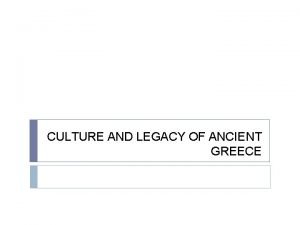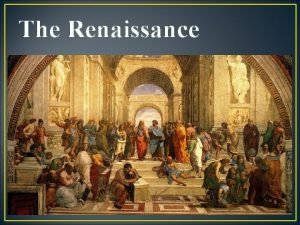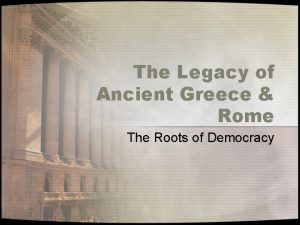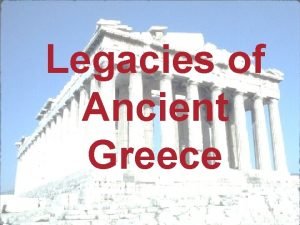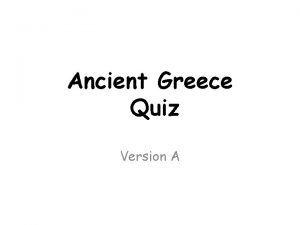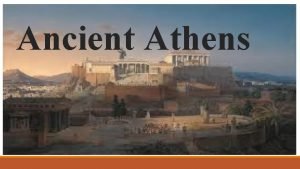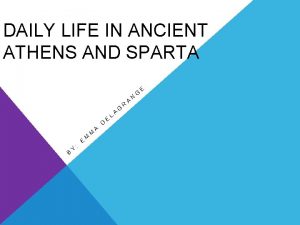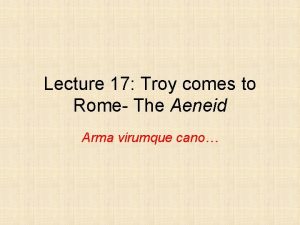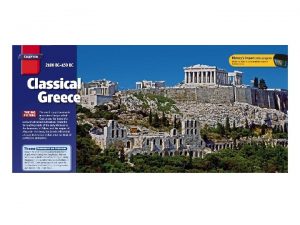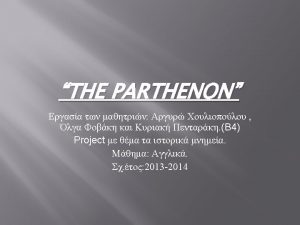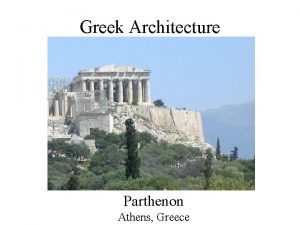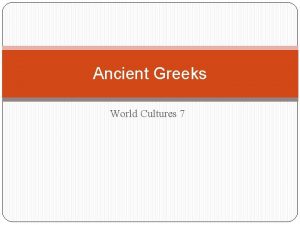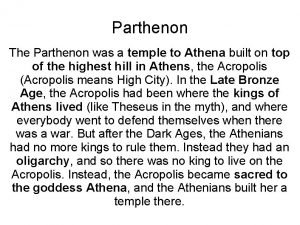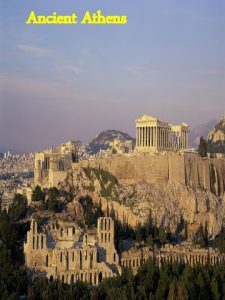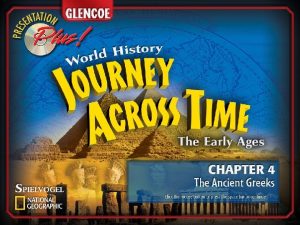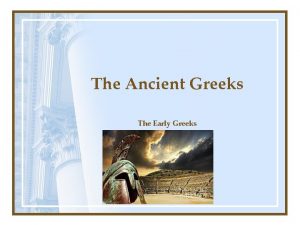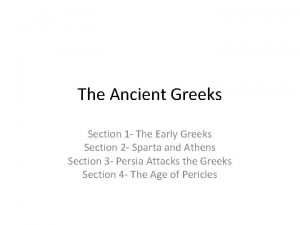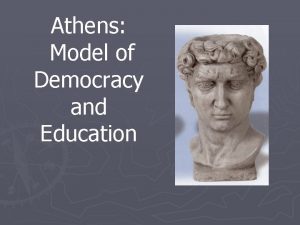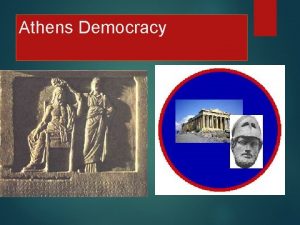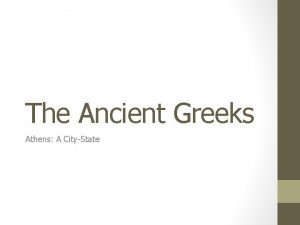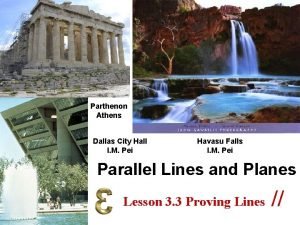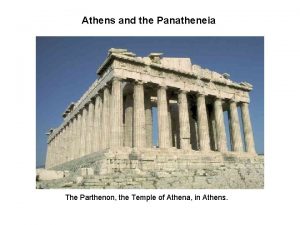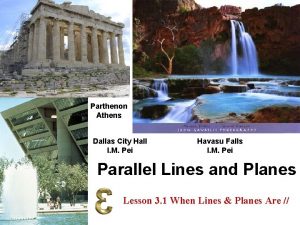Legacy of the Ancient Greeks Parthenon in Athens





















- Slides: 21

Legacy of the Ancient Greeks Parthenon in Athens, Greece

Classical Age of Greece (700 – 323 B. C. E) Produced a political, cultural & philosophical movement which was a key foundation for Western Civilization • Importance: Timeline 700 B. C. E. 1 C. E. 2009 C. E. |----------------------------------------------| (B. C. E. = before common era)

Greek Empire: comprised of city-states

Reading: Aristocrat Legacy of Ancient Greece Monarchy Mercantile Class

Term Set Format • Got Importance?

What is a Philosopher? A philosopher studies the world & human nature to find “truth” by using reason & logic. Knowledge Aware of facts/data Wisdom The ability to discern or judge what is true, right, or lasting; deep insight. Example: “We can’t solve problems with same kind of thinking we used to create them”

3 Greek Philosophers who: Respected human intelligence • faith in the individual Attempted to “seek truth "by using “reason & logic” to study nature Socrates 469 -399 B. C. E. Plato 427 -347 B. C. E. Aristotle 384 -322 B. C. E. Writings were often in argument or dialogue form

Medieval Art Rafael: School of Athens 1508

Plato & Democracy Reading • Reading

Philosopher Kings • What is virtue? • What is a benevolent ruler? • What are values? Socrates 469 -399 B. C. E. Plato 427 -347 B. C. E. Aristotle 384 -322 B. C. E.

The Trial of Socrates Video: Road to Democracy DVD Scene #10 minutes long

Primary Source: Aristotle Reading

Road to Democracy Solon introduces limited democracy to Athens (600 BC) • created 4 classes of citizens (based on wealth not heredity) • only 1/10 th of country considered “citizens” Cleisthenes advances democracy (500 BC) • attempted to break up the power of nobility • created “council of 500” to propose new laws Pericles introduces direct democracy (450 BC) • his rule known as Greek’s “Golden Age”

Direct Democracy vs. Republic Video: Road to Democracy DVD Scene 4

Primary Source: Pericles Reading Greek Ruler 495 – 429 BC

Greek Legacy • Considered foundation of Western Civilization – – – Developed Direct Democracy Empowered the “individual” citizen Advanced art, philosophy & science Promoted a meritocracy vs. aristocracy Developed 3 -branches of Government • Heavily influenced the Roman Empire

The fall of the Greek Empire 700 – 323 B. C. E • 461 -429 Golden Age of Greece under Pericles – Athens reigned supreme during period • City-States/Geography made empire difficult to unite – Sparta vs. Athens in constant conflict • 408 BCE Spartans seek Persian help to fight Athens – Sparta wins but empire greatly weakened – Sparta disbands Delian League (404 BCE)

The Fall of Democracy 383 -323 BCE • Macedonia in Northern Greece establishes dominance & establishes a monarchy under King Phillip II • Alexander the Great (Phillip’s son) greatly expands empire & rules until his death (323 BCE)

Plato’s Republic • Reading

Sparta Legacy vs. Athens Legacy Sparta had military supremacy but left little of lasting cultural significance Athens was eventually defeated by Sparta, but left a cultural legacy that influenced Western Civilization for 2, 500 years!

 Ancient greeks
Ancient greeks Greek culture values
Greek culture values What can we learn from studying ancient greek artwork
What can we learn from studying ancient greek artwork Which historical era literally means rebirth
Which historical era literally means rebirth Ancient greece contributions
Ancient greece contributions The legacy of ancient greece and rome
The legacy of ancient greece and rome Legacies of ancient greece
Legacies of ancient greece The legacies of ancient greece
The legacies of ancient greece Physical education
Physical education Which number represents the location of ancient athens
Which number represents the location of ancient athens Ancient athens map
Ancient athens map Daily life in ancient athens
Daily life in ancient athens Ancient greek flag
Ancient greek flag Option greeks wikipedia
Option greeks wikipedia Greek period flowers
Greek period flowers Where did the word theater come from
Where did the word theater come from Romans and greeks
Romans and greeks Doci timeo danaos
Doci timeo danaos Who were the persians
Who were the persians Baroque period floral design
Baroque period floral design Draw segment sr the bisector of the vertex angle prq
Draw segment sr the bisector of the vertex angle prq Balkan peninsula ancient greece map
Balkan peninsula ancient greece map


